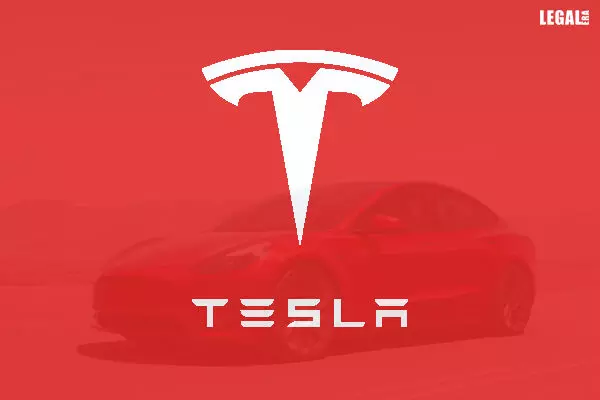- Home
- News
- Articles+
- Aerospace
- Agriculture
- Alternate Dispute Resolution
- Banking and Finance
- Bankruptcy
- Book Review
- Bribery & Corruption
- Commercial Litigation
- Competition Law
- Conference Reports
- Consumer Products
- Contract
- Corporate Governance
- Corporate Law
- Covid-19
- Cryptocurrency
- Cybersecurity
- Data Protection
- Defence
- Digital Economy
- E-commerce
- Employment Law
- Energy and Natural Resources
- Entertainment and Sports Law
- Environmental Law
- FDI
- Food and Beverage
- Health Care
- IBC Diaries
- Insurance Law
- Intellectual Property
- International Law
- Know the Law
- Labour Laws
- Litigation
- Litigation Funding
- Manufacturing
- Mergers & Acquisitions
- NFTs
- Privacy
- Private Equity
- Project Finance
- Real Estate
- Risk and Compliance
- Technology Media and Telecom
- Tributes
- Zoom In
- Take On Board
- In Focus
- Law & Policy and Regulation
- IP & Tech Era
- Viewpoint
- Arbitration & Mediation
- Tax
- Student Corner
- AI
- ESG
- Gaming
- Inclusion & Diversity
- Law Firms
- In-House
- Rankings
- E-Magazine
- Legal Era TV
- Events
- News
- Articles
- Aerospace
- Agriculture
- Alternate Dispute Resolution
- Banking and Finance
- Bankruptcy
- Book Review
- Bribery & Corruption
- Commercial Litigation
- Competition Law
- Conference Reports
- Consumer Products
- Contract
- Corporate Governance
- Corporate Law
- Covid-19
- Cryptocurrency
- Cybersecurity
- Data Protection
- Defence
- Digital Economy
- E-commerce
- Employment Law
- Energy and Natural Resources
- Entertainment and Sports Law
- Environmental Law
- FDI
- Food and Beverage
- Health Care
- IBC Diaries
- Insurance Law
- Intellectual Property
- International Law
- Know the Law
- Labour Laws
- Litigation
- Litigation Funding
- Manufacturing
- Mergers & Acquisitions
- NFTs
- Privacy
- Private Equity
- Project Finance
- Real Estate
- Risk and Compliance
- Technology Media and Telecom
- Tributes
- Zoom In
- Take On Board
- In Focus
- Law & Policy and Regulation
- IP & Tech Era
- Viewpoint
- Arbitration & Mediation
- Tax
- Student Corner
- AI
- ESG
- Gaming
- Inclusion & Diversity
- Law Firms
- In-House
- Rankings
- E-Magazine
- Legal Era TV
- Events
Tesla slapped with two class action suits over right-to-repair vehicles

Tesla slapped with two class action suits over right-to-repair vehicles
The plaintiffs claim it is very difficult to repair the automaker’s vehicles at an independent shop
American multinational automotive and clean energy company, Tesla has been sued for the second time over claims of violating antitrust right-to-repair laws.
Owned by Elon Musk, the automaker was first sued by plaintiff Virginia Lambrix. The second suit is led by plaintiff Robert Orendain. Filed within a week in San Francisco federal court, both relate to Tesla Model S owners.
The plaintiffs alleged they were “forced to pay supra-competitive prices and suffer exorbitant wait times to maintain and repair their Tesla vehicles.” The owners claimed the reason for the inordinate cost and wait times was, “Tesla’s monopolization....and restraint of the markets for compatible replacement parts (Tesla-Compatible Parts) and maintenance and repair services (Tesla Repair Services).
The proposed class action in both instances is open to anyone who paid for Tesla repairs or spare parts since March 2019.
The right-to-repair, or the right for owners of products to be able to fix and fiddle with their own belongings, has become a much-debated topic of late. However, the legislation surrounding the issue remains unresolved.
The issue falls under the Sherman Act, which broadly outlaws monopolization, even though the Supreme Court has held to only prohibit unreasonable restraint of trade. The lawsuits also cite the 1975 Magnuson Moss Warranty Act, which calls for refunds if the consumers were forced to pay extreme prices under the anti-competitive laws.
Like many others, Tesla electric vehicles are frequently only repairable at certified, company-owned service centres. Its spare parts should also come from Tesla manufacturers.
Aside from electric vehicles, the right-to-repair is a longstanding issue with buyers. Several automobile manufacturers have faced suits. These include Harley Davidson, which in 2022 was hit with a class action suit. Early this year, John Deere, the farm equipment company, became one of the first motor vehicle manufacturers to reach a right-to-repair agreement, after a protracted fight by the American Farm Bureau.
In 2021, the Librarian of Congress approved the US Copyright Office changes to the Digital Millennium Copyright Act. It intended to expand consumers’ rights to attempt maintenance and repairs on software-enabled devices. Even though Tesla, and most new vehicles, contain some software, the changes do not apply to mechanical issues within the cars.
The concerted attempts to implement nationwide legislation focused on motor vehicles have failed. At the state level, only Massachusetts passed a right-to-repair law for cars. Passed via the ballot system in 2020, however, it has still not come into effect because of the aggressive campaign by automakers opposing it.
Though the state has finally announced it would begin enforcement of the bill from 1 June. But that is subject to not being halted by a federal judge.



